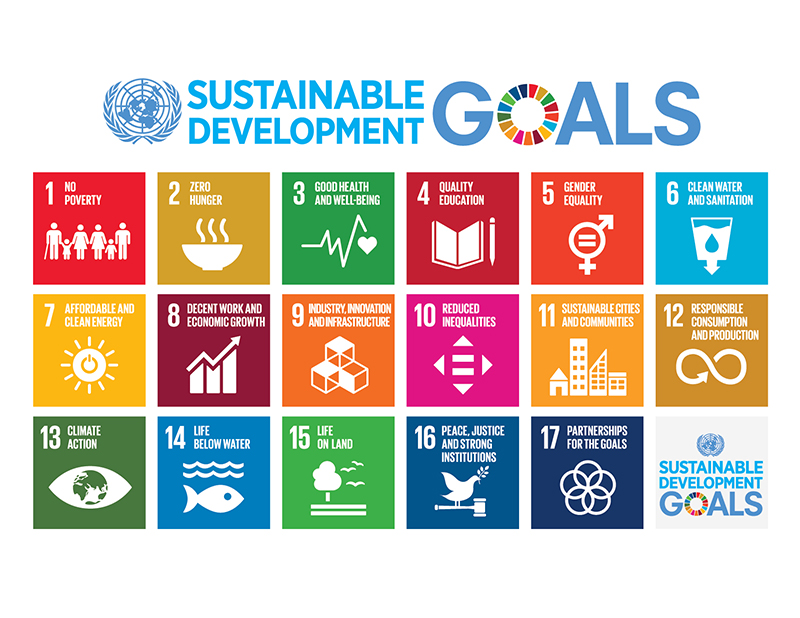
By Ashley Frederes and Philip Setel
Yesterday marked the first day of the high-level general debate for the 73rd session of the United Nations General Assembly. Over the next nine days, governments, UN agencies and other development partners will come together to discuss the world’s most pressing challenges and monitor progress toward achieving the 2030 targets of the Sustainable Development Goals (SDG).
A key marker of the SDGs and targets is countries’ fulfilment of SDG 16.9: “By 2030, provide a legal identity for all, including birth registration.”[1] Civil registration and vital statistics (CRVS), the registration of vital events such as births and deaths and cause of death, contribute to up to 40 percent of the SDGs and their targets.
Of the nine health-related goals, five are directly measured by mortality measures that come from CRVS. Yet many people around the world are born and will likely die without any record of their existence, hindering both the lives of millions and the progress of the SDGs.
Having a legal identity is at the heart of an individual’s existence. In developing countries, over a billion people have no record of their existence.
Without a birth certificate, many are denied basic services and rights, such as receiving medical services, going to school, opening a bank account or obtaining a mobile phone. Often, those without proof of identity are the most vulnerable including women, children, refugees or marginalized ethnic groups. In addition, death certificates provide legal protection for families, particularly for mothers and children, for inheritance of property and pensions.
Poorly functioning CRVS systems not only leave millions without access to social and legal benefits but also leave governments without accurate data to measure the real impact of interventions designed to meet the SDG targets, from maternal health and child mortality, to tuberculosis and HIV/AIDS, to the growing epidemic of noncommunicable diseases such as cancer and diabetes [2]. The data collected from registration records provides indicators for governments and decision-makers in the policymaking process.
An estimated 25 percent of children under five go unregistered, and 65 percent of global deaths are reported without a recorded cause. The problem is more acute in many low- and middle-income countries where the capacity, technology and legal framework to improve CRVS systems is under-resourced, inefficient or lacking altogether.
Ensuring that deaths are medically certified can be challenge for governments in situations where most deaths occur outside of health facilities. Often when deaths are registered, the quality of the data is unreliable, leaving governments to make “best guess” decisions on allocation of resources and programs. Increasing country investment in CRVS systems is key to ensuring governments have accurate information to strategically turn data into action, preventing needless deaths.
Since 2015, the Bloomberg Philanthropies Data for Health Initiative has provided technical assistance to 20 low- and middle-income countries and cities to collect and use critical public health data with a focus on increasing birth and death registration and improving the quality of cause-of-death data. We work on policies and system factors that constrain the extension of the benefits of registration to individuals, and the production and use of this crucial information.
Everyone has the right to a legal identity [3] and should have access to basic rights and protections. With advances in technology, it is possible to count every human life and make the invisible visible. With the SDGs on the agenda [4] for the 73rd session of the UN General Assembly, it is time for governments and global development partners to prioritize strengthening CRVS systems to ensure that no one is left behind.
Counting the Uncounted is a blog series that examines topics related to civil registration and vital statistics. The blog series is a part of the Bloomberg Philanthropies Data for Health Initiative. The views expressed are not necessarily those of Bloomberg Philanthropies. Partners in the Initiative include: WHO, the U.S. Centers for Disease Control and Prevention (CDC) and the CDC Foundation, the University of Melbourne, and Johns Hopkins University. For more information visit: Bloomberg Philanthropies Data for Health Initiative
[1]https://www.un.org/development/desa/disabilities/envision2030.html
[2]https://www.vitalstrategies.org/vital-stories/?topic=all&program=343&start=20130531&end=201809
[3] https://www.un.org/en/universal-declaration-human-rights/
[4] https://www.un.org/en/ga/info/meetings/72schedule.sh